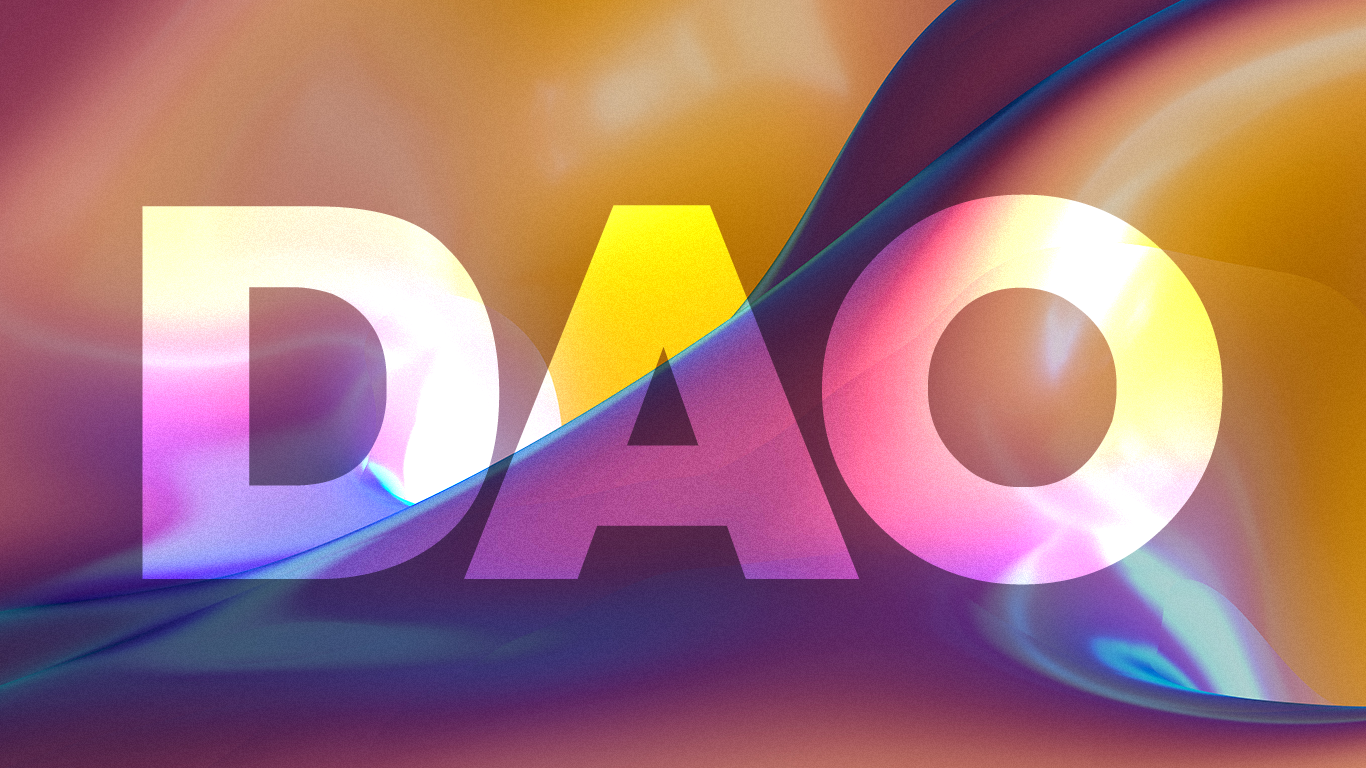DAOs are one of the many intriguing innovations to emerge from blockchain technology. Like other blockchain applications, DAOs are designed to eliminate some form of control associated with the traditional world settings.
In simpler terms, a DAO or decentralized autonomous organization is an organization that exists and operates without a central authority figure such as a CEO or Venture Capital.
These entities employ a community-type leadership allowing everyone in an organization to have a say in making decisions. Due to this decentralized governance system, DAOs have witnessed massive adoption within the cryptocurrency space and around the world.
In this guide, we’ll provide extensive information on what DAOs are, how they work, why the world needs DAOs, and the advantages and disadvantages that come with them.
What is a DAO?
A decentralized autonomous organization is a blockchain-based organization collectively owned and governed by a community based on a specific set of rules.
In a DAO, there is no central authority or leadership that makes decisions, as is common with most traditional organizations and companies. Instead, a DAO operates as a community where individual members are allowed to contribute to every decision-making process.
Decisions are made via proposals and voting sessions within the organization. Each community member can create a proposal regarding the operations of their DAO. Then, the autonomous organization conducts a voting session in which a specific level of consensus must be attained for the approval and execution of each proposal.
With this system, DAOs enable individuals to work collectively towards a common goal without the need for centralized leadership. Additionally, all DAOs use treasury management systems that ensure effective and efficient management of funds. Access to these treasuries is only granted with the approval of the governing community. Considering that these organizations are built on blockchains, their transaction records are transparent, stored on the blockchain and can be viewed by all community members.
How does a Decentralized Autonomous Organization (DAO) work?
As earlier stated, DAOs are organizations that are managed by a community. To operate such a governance system, they rely on the power of smart contracts. These are programs that run on a blockchain and are designed to automatically execute when certain conditions are met.
Smart Contracts
Smart contracts are used to set up the operational framework of a DAO. Their code contains and enforces the rules of the organization. These smart contracts are also responsible for executing all transactions of a DAO, as they maintain sole control over the treasury. Basically, through the use of blockchain-based programs, DAOs are able to operate fully as autonomous entities.
Furthermore, smart contracts are always published on a blockchain; therefore, their code can be viewed and verified by anyone. However, it is worth noting that once a smart contract is deployed to create a DAO, the rules of the organization can only be changed through a general consensus of its members.
Governance Tokens
That said, there are various ways to become a member of a DAO. Most DAOs employ a token-based membership, which allows new members to be admitted via the ownership of a governance token. These tokens are native to their respective DAO and are usually available for trading on cryptocurrency exchanges. Some of these tokens can also be earned by being a liquidity provider or by participating in some form of proof-of-work activity.
Investors are granted voting rights by acquiring a governance token, enabling them to become a part of the DAO. For most DAOs, the amount of tokens an investor holds determines the weight of their voting rights. Hence, an investor with 1000 tokens typically exerts more influence on the DAO than an investor with 500 tokens.
All members of a DAO participate in its governance by voting on or creating proposals directed at the organization’s operations. For a proposal to be approved, a predefined majority of the community, as stated in the smart contract of the DAO, must vote in favour of it.
Why Do We Need DAOs?
A DAO is a blockchain-based entity by nature; therefore, it presents users with several benefits that are not present in a traditional organization setting.
Trust & Anonymity
For instance, DAOs enable several individuals with anonymous identities to work together on a common mission. This is because there is no need for trust among members of the DAO. Each member needs only to trust the smart contract code, which is publicly verifiable by anyone.
Hierarchy
Furthermore, a DAO is a flat and fully democratic entity with no hierarchy, allowing all community members to have a say in the organization’s operations. Also, decisions are usually executed automatically and quickly in DAOs, as there is no need to wait on any form of human intervention to commence an operation.
Transparency
Additionally, in contrast to a traditional organization whereby records of activities/meetings can be kept away from the public or even manipulated, all activities of a DAO are transparent and publicly available on the blockchain. These include voting sessions, approved and rejected proposals, and all financial transactions of the DAO, ensuring the total transparency of the organization.
What are DAOs used for?
DAOs are commonly used to govern decentralized protocols/tokens and DeFi projects. They are employed in making any changes to the protocol and managing assets owned by the protocol. Examples of DeFi DAO-backed protocols include Uniswap, Maker, Aave, etc.
Furthermore, a DAO can also be set up as a charity that receives donations from people, relying on its members to collectively determine which causes to fund.
Another application of DAOs can be venture funds, which involve investors pooling capital together and deciding on certain ventures to sponsor. In any case, all profit made is redistributed among the members of the DAO.
Other areas in which DAOs have been applied include art collectives, media/entertainment, politics, trust funds, project fundraising, etc.
Pros of DAOs
The popularity of DAOs is rising due to the unique benefits they offer to their users. The following are some of the advantages of a DAO:
- Decentralization: In DAOs, decisions are made by a community of individuals rather than a central authority. This way, no single person or persons can exert total control over the organization.
- Collective governance: All members of a DAO can participate in its governance process, regardless of their respective voting power. This is because the DAO allows all its members to propose ideas or changes as well as have a direct say on all critical matters of the organization.
- Efficiency: The operations of a DAO are regulated by smart contracts, leaving no room for human error in executing a decision.
- Transparency: The activities of a DAO are stored on its underlying blockchain, which is a publicly accessible ledger. Therefore, a DAO is a totally transparent entity, with its record of operations available to the entire public.
Cons of DAOs
Although DAOs are revolutionary innovations with massive potential for widespread adoption, there are still several limitations attached to this management system. The following are some of the disadvantages of a DAO:
- Centralization of voting power: While DAOs are known to be decentralized, there is the possibility of the concentration of voting power among a few community members. For example, in a token-based membership DAO, a group of investors can acquire a large share of the governance tokens, enabling them to exert major influence over the organization.
- Slow decision-making: In a DAO, the decision-making process can be quite lengthy as each member is usually given a chance to vote on each proposal. This can be quite unbeneficial when a swift decision is needed – as in emergencies.
- Lack of Regulation: Unlike traditional organizations that operate under a regulatory body or bodies, DAOs are unregulated and accountable to no entity. This is a common concern with blockchain applications, as it allows scammers and fraudsters to operate within the space.
- Smart contracts vulnerability: Like any form of code, smart contracts have vulnerabilities that bad actors can exploit to steal assets from the DAO. A prominent example of such an attack occurred in 2016 when the first DAO project – known as The DAO – lost $50 million worth of assets due to a technical vulnerability exploited by a hacker.
FAQs
What is a DAO?
A DAO or Decentralized Autonomous Organization is a blockchain-based entity governed by a community in accordance with rules enforced by a smart contract.
What are the types of DAO membership models?
The three major types of DAO membership systems are Token-based, Share-based, and Reputation-based membership. To learn more about each membership model, you can click on this link.
What is the largest DAO?
The largest DAO is the EOS blockchain, with 3.2 million token holders and a market cap of $2.1 billion.
Final Words
As blockchain-based organizations, DAOs have a massive potential to alter corporate leadership as we know it. That said, as an investor looking to join a DAO, it is always important to conduct extensive research on each project to seek its validity and gain knowledge on each process of its governance.








